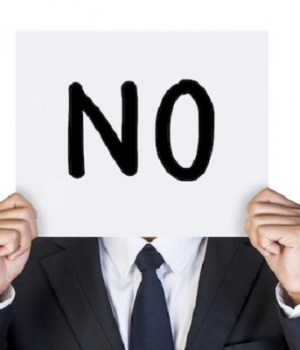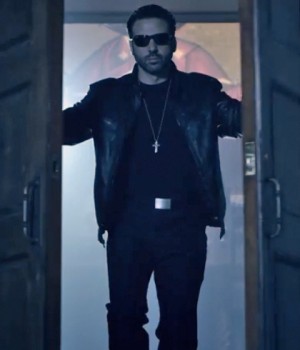You’ve delivered a flawless pitch. Overcome every objection so far and are moving in for the hard sell. You can see them signing the dotted line and becoming another satisfied customer.
But then there’s a pause.
And the prospect starts with ‘I like you and your business but it’s just that I can get the same thing cheaper from (enter whatever reason here).
How frustrating! You know your product is better. No, it’s way better! And you love your customers more than anyone. If only they would just buy and you could show them the love.
Customers everywhere love cheap prices
If this sounds familiar then you are not alone. This is one of the most common objections regardless of the product or service you sell. And it applies across all industries. It’s almost like it’s ingrained into people to say no on price. So here’s what you do.
Put it back on them. Yep, take the pressure off yourself and ask the prospect ‘Why do you think they are cheaper?’ And before they can answer follow it up with ‘I can assure you it’s not because they’re really nice guys or they’re doing it for the hell of it’.
Where are they skimming you? You need to start bridging the conversation back to value. The objection isn’t the price but the value for money. The value still isn’t clear to them so you need to break it down and really spell it out for them.
If you are a seasoned professional you should know exactly where your competitors fall short. But let the customer answer the question. Plant the seed in their mind and get them thinking and coach them along the way. Sure a Toyota will get you from A to B but a Mercedes will get you there in comfort and style.
What you need to remember
Let’s use the hotel industry as an example. What happens when you book a holiday on Expedia or Trip Advisor? You see the price upfront and then you go on a value hunt. You look at the pictures, search the amenities and view feedback from other travellers. From here you put your own personal value on a hotel.
Consider looking at two places. One has four pools, five restaurants, three bars, free WiFi and is right on the beach. It will cost $2,000 for a week. Option 2 only has two pools, one restaurant, one bar and located 500m from the closest beach. But it only costs $1,000 for the week. Both places meet the basic need of providing accommodation. The rest is just a value add.
But what if you’re trying to sell the first hotel to a couple? Maybe they prefer going to the beach over pools, want to eat out at different places in the city and have their own portable internet device? Well the value has just significantly reduced because these additions are not part of the customers’ desires. It’s not part of what they want or what motivates them to make decisions.
It’s your job to know what the customers’ wants and desires are before promoting the value add features. There’s no point selling a Ferrari to someone that wants an off road family car. Find what makes the customer tick and use this when communicating the value and justifying the price.
And if you can’t justify why your prices are higher than your competitors then you need to start adding value. Over promise and over deliver. Using the hotel example above maybe adding wine and chocolates on arrival and a $100 spa voucher could result in a sale. Adding $150 to secure a $2,000 sale is simple math. If you don’t have high prices you can’t afford to spoil your customers like they deserve.
Phil Usher is the founder of Cheeky Investor, a brash new education website to supercharge your business, career or finances. Having launched, acquired and sold several businesses. he sometimes refers to himself as the Batman of Business







![Four Page Digital Marketing Strategy [FREE RESOURCE]](https://anthillonline.com/wp-content/uploads/2015/01/FOUR-PAGE-IMAGE-100x75.png)
![THE ULTIMATE CASHFLOW CHECKLIST [FREE DOWNLOAD]](https://anthillonline.com/wp-content/uploads/2016/06/james-Seven-simple-strategies-to-cut-costs-04.pdf-Box-2016-06-30-13-49-35-100x75.png)
![Four principles to creating dedicated customers…or zombie loyalists with Peter Shankman [Free report]](https://anthillonline.com/wp-content/uploads/2015/11/Screen-Shot-2015-11-26-at-11.16.26-100x75.png)
![How to pitch sales and marketing ideas to your boss with James Tuckerman [FREE REPORT]](https://anthillonline.com/wp-content/uploads/2015/07/Render-3-100x75.png)
![How to confidently raise venture capital… with Jack Delosa [CHEAT SHEET]](https://anthillonline.com/wp-content/uploads/2016/04/jack-de-losa-confidently-raising-venture-NFSU-rebrand-01.pdf-Box-2016-04-19-12-37-42-100x75.png)
![San Francisco, where all that glitters is, quite possibly, glitter [VIDEO]](https://anthillonline.com/wp-content/uploads/2013/07/SFTZ-300x350.jpg)
![Is this what a gamified future will really be like? [VIDEO]](https://anthillonline.com/wp-content/uploads/2012/08/HypnoToad2-300x332.gif)



![How to build a retail empire with James Webber [FREE REPORT]](https://anthillonline.com/wp-content/uploads/2015/06/james-webber-instagram-memes-01-300x194.jpg)
![Five ways to manage your time by managing yourself, with Helen Ebdon [CHEAT SHEET]](https://anthillonline.com/wp-content/uploads/2015/07/ebdon-3d-cover-01--100x75.png)
![How To Grow Your Business and Profits with Jason Cunningham [CHEAT SHEET]](https://anthillonline.com/wp-content/uploads/2015/07/Cunningham-100x75.png)
![How to expand into New Markets with Elsita Meyer-Brandt [CHEAT SHEET]](https://anthillonline.com/wp-content/uploads/2015/07/Screen-Shot-2015-11-26-at-15.52.30-100x75.png)
![How to secure lucrative sponsorships in five steps [CHEAT SHEET]](https://anthillonline.com/wp-content/uploads/2016/02/jackie-fast-meme-04-100x75.jpg)
![New Zealand’s Xero eyes US IPO, further disruption as subscribers increase [INFOGRAPHIC]](https://anthillonline.com/wp-content/uploads/2014/07/sruuuuujana-212x194.png)
![Ever wonder if your ‘content marketing’ is really just crap? You gotta see this! [INFOGRAPHIC]](https://anthillonline.com/wp-content/uploads/2014/08/content-100x75.jpg)
![7 Business Lessons From Game of Thrones [INFOGRAPHIC]](https://anthillonline.com/wp-content/uploads/2014/10/infographic-games-of-thrones-041-100x75.jpg)
![How to build your own Media Empire… In seven steps with Nathan Chan [INFOGRAPHIC]](https://anthillonline.com/wp-content/uploads/2014/10/Nathan-Chan-Infographic-e1413419529176-100x75.jpg)
![5 Business Lessons From Tinder [INFOGRAPHIC]](https://anthillonline.com/wp-content/uploads/2014/10/Tinder-Elegant-Infographic-100x75.jpg)



